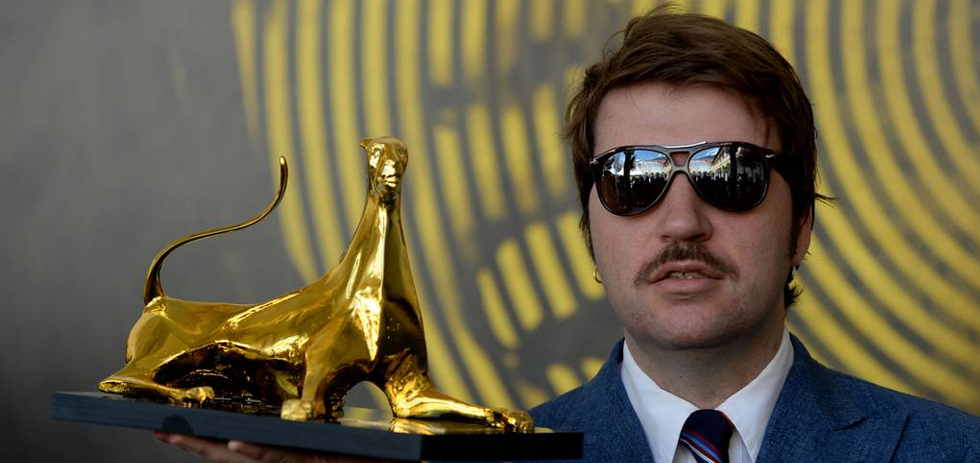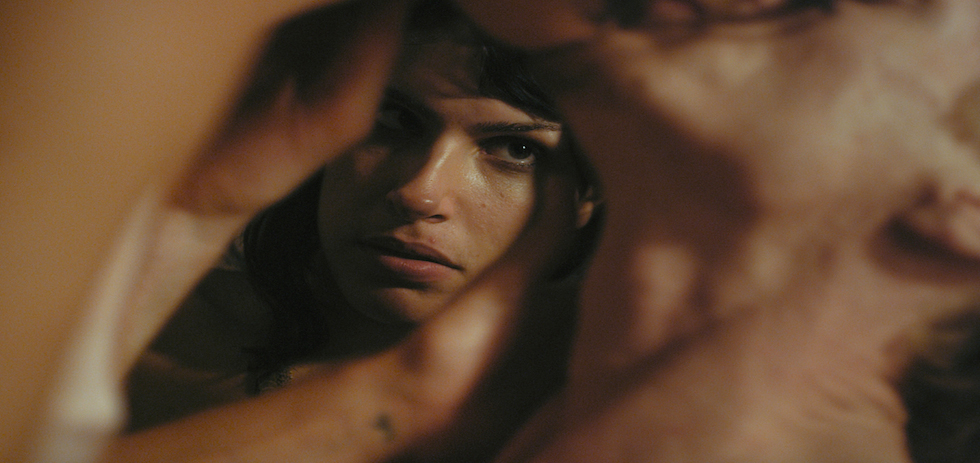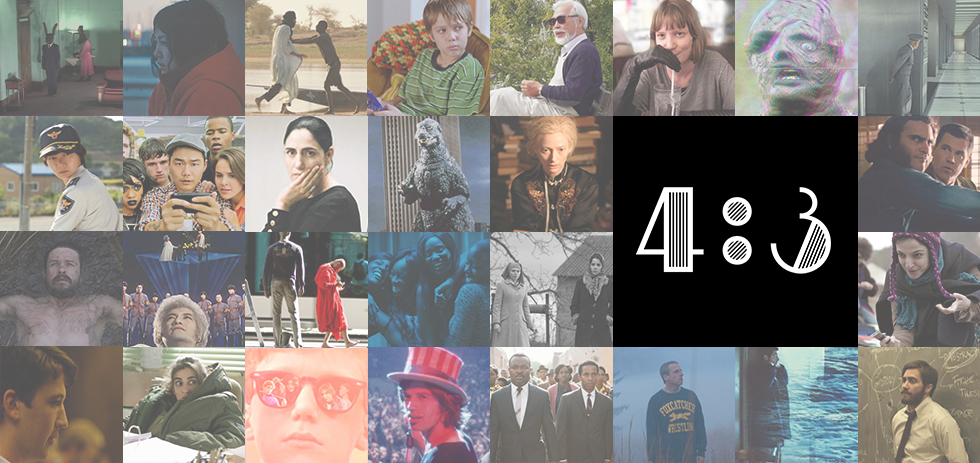Conor Bateman: On May 2, 2014, with our hearts firmly in our throat, we removed the temporary landing page and launched 4:3, the website you are currently reading and one which we had been planning for nearly six months. Almost all of the initial editorial and writing team were university students in Sydney, the few that weren’t were recent graduates, and the site served as an outlet for writing exclusively about film in a way that wasn’t tethered to the academic stylings we’d become accustomed to in film studies courses. The site itself was borne as a compromise between an online film journal and a regular news and review website; a merger of those ideas saw us focus on relatively longer reviews and essays. We also saw 4:3 as a way to fill a gap in the Sydney film writing sphere; in-depth festival coverage was lacking outside of Senses of Cinema, and so many local online film reviews were little more than capsule-sized.
In the year since we’ve launched we’ve seen over 780,000 words published from nearly 40 writers, including 383 reviews, 42 interviews and coverage from 33 film festivals. Last year’s Sydney Film Festival was the biggest of those, and something of a trial by fire for us. You can see the extent of that coverage here; over those two weeks we had a large writing team roaming the CBD, submitting reviews, interviews and essays and, as an editorial staff, we couldn’t have been happier with the way the site managed to develop a distinctive voice, a little over a month from launch date and through one of the biggest events on the Australian film calendar. Highlights of that festival included Jeremy’s great interview with Shelly Kraicer about Chinese cinema (in fact all of our Chinese cinema coverage was illuminating and engaging), Matilda Surtees’ essay on the disappearance of celluloid at the fest and some of the passionate raves we ran, like Virat Nehru’s look at Siddharth and Felix Hubble on Killers. The fest also allowed me to find my sea legs in writing a lot of reviews in a short span of time, and I’m very proud of my pieces on two of my favourite films of last year, Boyhood and Fish & Cat.
Some of my favourite pieces we’ve published elsewhere on the site include James Hennessy’s nostalgic look back at film consumption, VHS DREAMS, and the longform deep-dive essays of Jake Moody (in particular his look at the long film). From a personal perspective, the most enjoyable interview I’ve done was with Gabe Klinger at last year’s SFF, and I’m very pleased with some of our regular columns, in particular Less Than (Five) Zero, as well as our Staff Picks format, that has allowed us to showcase the breadth of knowledge and passion of so many of our contributors.
Jeremy Elphick: I feel that when we started out there was a serious absence in film criticism in Sydney, I mean, it’s why we started the site. A huge part of this was in our aforementioned festival coverage ethos of trying to cover as much as possible rather than simply the largest films, however, I feel like this carried into our interviews and conversations we conducted throughout the year as well. We launched the site with the a conversation with Joshua Oppenheimer – the most comprehensive he’s given to any Australian publication – about his film, The Act of Killing, and his career and inspirations in general. The piece set the tone for what we wanted to do with conversations on the site: to have a focus on in-depth content and extensive research. I think there was really broad coverage with the interviews we conducted, both with larger names in filmmaking, a bunch in the industry, and the people involved on a smaller – more independent – level. In a year we’ve had Conor talking to the inimitable James Benning, James Hennessy’s conversation about Fela Kuti with Alex Gibney, Jess Alcamo’s chat with Appropriate Behaviour director Desiree Akhavan, Ivan Cerečina’s infamous chat with Albert Serra, Brad Mariano’s more localised chat with video store owner Ben Kenny, and most recently, Catherine Knight’s interview with the iconic Bruce LaBruce.
With our approach to interviews, I really wanted us to have a mixture between directors, those in other positions of the filmmaking process, and those involved on the curation end of the scale. I think we managed to pull that off in our first year. Our Oppenheimer interview helped us get the site up and running, so that conversation will always be very special to us. Talking to George Gittoes in his enormous Rockdale studio, navigating Skype malfunctions with Christopher Doyle and Sion Sono and having a translator for the first time with Diao Yinan were all highlights of our first year for me on a personal level. Beyond that, talking to Saher Amer at University of Sydney about her newly conceived Queer Arab Film Festival really covered what I thought the site should be doing on a local level. Talking to her really made clear how complex and broad the local community is that engages with film in Sydney, the community I’d like to continue to navigate in the coming years with our site. I think one of the things most important about the site has been our constant focus on local cinematic landscapes throughout our non-review categories. While a lot of the time it seems like the most impressive cinematic feats are coming out of the bigger festivals overseas, or the more ‘legendary’ theatres, I found that throughout our local coverage it was clear that there’s no shortage of fascinating cinematic anecdotes and diverse filmic culture right under our nose in Sydney.

Brad Mariano: For various less than interesting reasons I was unable to make a large personal contribution to our SFF coverage, though it’s something that made me incredibly proud of our team. But after a more than solid innings on our home turf we tried something just a little more ambitious and organised our first team trip to Melbourne in August for Melbourne International Film Festival. Chasing arthouse Australian premieres, esteemed interview subjects and perhaps the white whale of cinephilia itself, the entirety of the elusive Jacques Rivette’s entire Out 1 in a spectacular retrospective program, it was an incredible worthwhile venture. I’m indebted to the writers who out of their own pockets came down to bask in and review great cinema, providing coverage of some incredible films that as New South Welshmen we otherwise might have missed, turning in collectively over 40 reviews between our small team. Editor Jess did justice to Tsai Ming Liang’s masterful Stray Dogs in her thoughtful review, and in a feat unlikely to be repeated, Tsai earned a second Highly Recommended rating from us from the same festival with his curious Journey to the West, courtesy of Matilda. On a whim Jeremy caught Timbuktu, a film on none of our radars at the time, before it became quite a critical hit worldwide. I was personally lucky enough to be able to review two of the best films I’ve seen over the last few years, one being Alexei German’s Hard to Be a God, a polarising film among staff that plays like the most unpleasant theme park ride ever made, and in my longest review on the site I consider the subtleties in James Gray’s latest, the powerful period drama The Immigrant. Although for all our prose, some of the most memorable content from Melbourne came from Ivan’s interview with Catalan director Albert Serra, director of staff favourite, the hypnotic Story of My Death. He was extremely generous with his time and forthcoming with his opinions, making his interview one of the most interesting pieces we’ve run.
Our coverage of film festivals and contemporary cinema is something we’re all incredibly proud of, but we also understand that writing about film isn’t like the news and purely staying up-to-date. Cinema is a living, breathing artform over one hundred years old, and a watching a silent film from the 1920s is no less an immediate, relevant and transfixing experience as the latest blockbuster or cutting-edge drama, and our commitment to older films is something I’m passionate about. One feature I’ve been particularly fond of throughout our first year is our You Have To See… column, where writers write an essay on a favourite film for others to respond to. I personally was introduced to a lot of great cinema through this segment – I particularly enjoyed Imogen’s defence of Under Capricorn, a lesser known/appreciated Hitchcock that plays out as a rough adaptation of Othello in colonial Australia (!) and the Maysles Brothers zeitgeist-defining Gimme Shelter, a harrowing document of the notorious Altamont concert that Jim writes wonderfully on. More recently I loved entering the universe of Roy Andersson through Lidiya’s considered piece on You, The Living, and though I’ve yet to see the film, I loved Sarinah’s ode to Godard’s Eloge de l’amour.
Imogen Gardam: It feels strange to be gearing up for the Sydney Film Festival again, as it doesn’t really feel like a year since we tackled it last. Throughout our first year of 4:3, we’ve been constantly growing, rediscovering and redefining what we do. The site is an incredible platform for festival coverage, including smaller festivals that might not usually warrant the time to cover, and we discovered that there was a space to fill in Australian film writing with regards to that. We’ve been able to offers writers a chance to convince us in the ever excellent and always surprising You Have To See… segment, some fantastic roundtables and staff picks, and with something of blank slate to start from, we’ve seen some incredible long-form essays emerge. As industry liaison, it’s been a joy to see the site grow in its relationships with both its audience and the industry. We have a long way to go, and the opportunity to reflect is as much a call to arms as anything else. I’m looking forward to seeing what we can pull off in our second year.

Felix Hubble: In 4:3, it’s been great to find a website that places just as much value in dumb genre flicks as it does in little American indies, huge blockbusters and festival favourites without going down the route of endorsing some sort of vulgar auteurism as a subversive statement. It’s allowed me to talk about the ‘dumb’ films I love that might have missed out on in depth coverage from other sources (excluding more ‘enthusiast press’ style sites). I’ve had great fun interviewing Joe Swanberg (one of my all-time favourite filmmakers), Freak Me Out’s programmer Richard Kuipers, and I’ve had a great time singing the praises of Richard Bates Jr., straight-to-video flicks, and the Mo Brothers’ Killers. In terms of my favourite stuff on the site, I’m a big fan of Isobel Yeap’s takedown of 50 Shades of Grey, Grace’s fantastic review of Appropriate Behavior and Ivan’s ridiculous interview with Albert Serra that goes completely off the rails.
Jessica Ellicott: One of the things I most appreciate being able to do at 4:3 is getting involved in the huge array of film festivals across Australia and the world. I’m really proud that over the course of the past year we’ve covered everything from huge international festivals like the Berlinale and New York Film Festival, major Australian international film festivals like SFF, MIFF and BAPFF, all the way to extensive coverage of important local festivals like the Alliance Francaise French Film Festival, Mardi Gras Film Festival and the Sydney Underground Film Festival (just to name a few).
It’s also really interesting to see certain pieces take off and reach a huge audience. Isobel Yeap’s essay on female sexuality in Lena Dunham’s Tiny Furniture reached thousands, and is still going strong. Dominic Barlow’s excellent takedown of last year’s Tropfest was another major hit, as was Saro’s wonderfully snark-ridden take on the Ghostbusters scandal earlier this year.
Overall, I’ve really appreciated the limitless editorial freedom to write whatever we want –personally I’ve enjoyed ranging from personal passion projects like writing about Peter Lorre’s underseen masterpiece The Lost One to outrageous jaunts like spreewatching every Fast and the Furious movie with Brad and Felix.
Here’s to the next year!
The editors would like to thank our wonderful team of contributors and staff writers, Joshua Oppenheimer for being our maiden interviewee, Nashen Moodley and the staff at Sydney Film Festival (in particular their inimitable Publications and Content Editor Melba Proestos), Mathieu Ravier for his support and guidance, our talented site designer Andrew Passarello, the distributors who took a chance on us (special thanks to Madman Films and their invaluable support and assistance), and you, the readers of 4:3.
